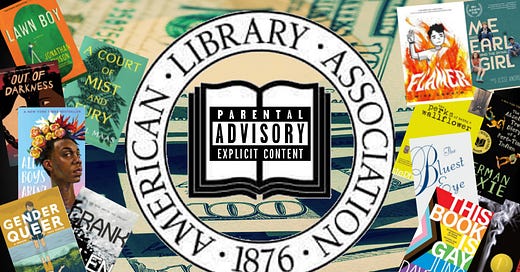American Library Association Receives $1M Grant To Fight Book Challenges In Court
Lawfare: the use of legal systems and institutions to damage or delegitimize an opponent, or to deter an individual's usage of their legal rights.
While challenging books for questionable content is not new, the recent wave of books containing offensive language or graphic sexual content that have found their way to shelves in public libraries and schools as well as into the hands of children has increased the number of book challenges exponentially. Mothers, fathers, and other concerned citizens …
Keep reading with a 7-day free trial
Subscribe to Wrong Speak Publishing to keep reading this post and get 7 days of free access to the full post archives.





